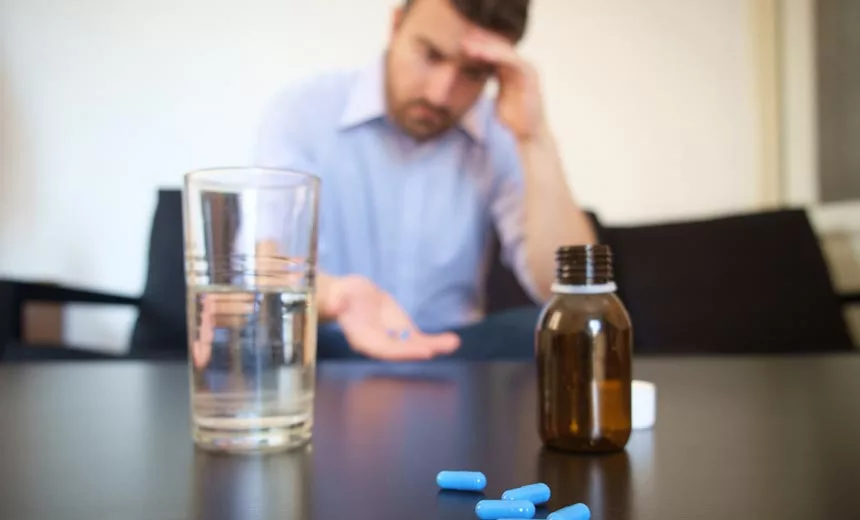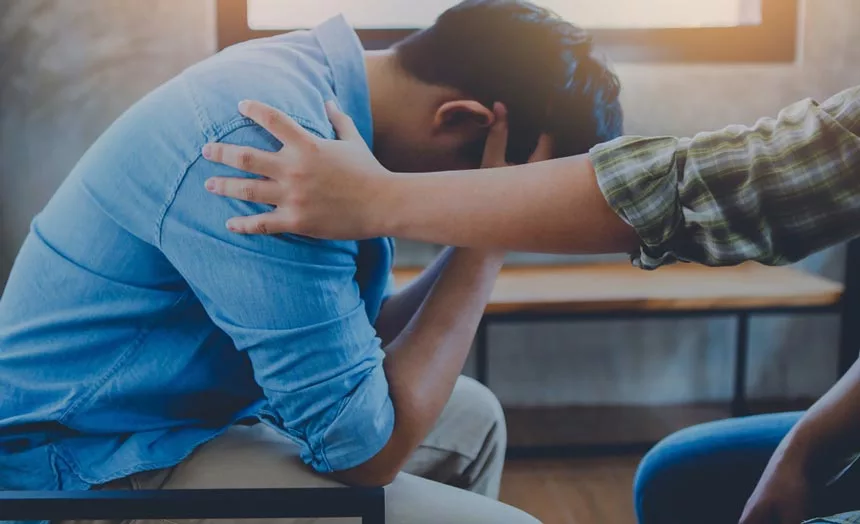Alternative Treatments for Substance Use Disorders
Table of Contents
- Alternative Treatments for Substance Use Disorders
- What is Psychedelic Treatment?
- Are Psychedelics Safe to Use?
- Using Mood Altering Substances In Recovery
- Are Psychedelic Treatments Effective?
- Psychedelics In Recovery: An Emerging 12 Step Fellowship
- The Limits of Psychedelic-Assisted Treatment
- The Importance of Following a Comprehensive Treatment Plan
- Choosing the Right Addiction Treatment Program
- Find Treatment With Find Addiction Rehabs Today!
- FAQs on Using Psychedelics in Recovery
As more and more cases of addiction and substance abuse are continuing to spread throughout the US, the need for effective treatment options has become more important than ever. Recently, more researchers and treatment providers have begun to openly discuss the use of psychedelics in recovery to promote healing from addiction and other behavioral issues.
Psilocybin, the main active ingredient in psychedelic mushrooms, has been found promising in early studies for promoting long-term recovery in those struggling with alcoholism and harder drugs, as well as nicotine, all of which are substances that are known for their resistance to long-term treatment.
Keep reading to learn more about how psychedelic experiences can help you overcome your drug or alcohol abuse and achieve soundness of mind, spirit and body. If you have not yet begun getting clean and/or sober and are ready to start your recovery journey, the Find Addiction Rehabs team can help you find treatment options nationwide.
What is Psychedelic Treatment?

Psychedelic medicine is the use of mind-altering substances to treat behavioral conditions and mental disorders, including depression, anxiety, trauma-based conditions, and addiction. This can include the use of ketamine, LSD, psilocybin, and MDMA-assisted psychotherapy.
Ibogaine treatment has also been gaining popularity, as it is able to produce a spiritual experience without the potential for addiction that other psychedelic drugs may carry. This can also be used as a harm-reduction method, promoting the safe use of mind-altering drugs in controlled settings.
For those who are struggling with addictive patterns, whether this involves a cocaine addiction, heroin addiction, opioid use disorder, or any other drugs, it can be difficult to overcome their substance use and develop healthier habits.
In 2000, the John Hopkins Center for Psychedelic & Consciousness Research became the first institution to be approved for conducting research on the personal benefit and recovery properties of psychedelic use in treatment.
The psycho-spiritual experiences provided by psychedelic substances can, for most people, gain insight into their addiction and self-destructive habits, and develop a new perspective of how they want to live their lives.
As they are freed from the idea that their addiction must define them, this can play a large part in their ability to successfully complete other treatment programs and maintain long-term recovery.
Are Psychedelics Safe to Use?
It is important to keep in mind that any drug can be unsafe if not used correctly, or without the guidance of a medical professional. This, of course, includes psychedelic substances. While psychedelics have gained much interest in the benefits of their intentional use for treatment purposes, it is important to keep in mind the potential dangers that come with them.
If someone is not properly prepared for or guided through their psychedelic experience, they can quickly become paranoid, anxious, or even experience psychosis. Nausea, vomiting, and headache are also common side effects of experimenting with psychedelics.
It is important to use these substances while under the supervision and guidance of a professional who can guide you through the process, make sure you are safe throughout the entirety of your trip, and provide support should you need it.
Using Mood Altering Substances In Recovery

It is important to remember that there is a distinct difference between mind-altering and mood-altering substances. Unlike psychedelics, mood-altering substances can include alcohol, drugs, and certain medications. These can trigger negative emotions in the users, and even cause hallucinations and episodes of psychosis.
In most cases, using mood-altering substances in addiction recovery is a dangerous and often counterproductive practice. These can trigger cravings and relapse, and can also make it difficult to manage the emotional and psychological challenges of recovery.
For people in addiction recovery, it is important to avoid all mood-altering substances, including alcohol, drugs, and even certain medications. These substances can trigger cravings and relapse, and can also make it difficult to manage the emotional and psychological challenges of recovery.
Even psychedelics can become addictive for some individuals, another reason to carefully consider their involvement in your recovery.
Are Psychedelic Treatments Effective?
Many people describe their experience with psychedelics as experiencing a sort of spiritual awakening and a profound deeper understanding of themselves and life. While those who partake in psychedelic treatments share the experience in the sense that they feel a sense of renewal afterward, it is important to keep in mind that this may not always be the case.
Everyone responds to different substances differently, and there is no guarantee that one person’s trip will be the exact same as another’s. Whereas one person may find their psychedelic experience life-changing, another may have a bad trip that can actually make their mental state even worse. Finally, in a small minority of users, a condition called Hallucinogen Persisting Perceptive Disorder (HPPD) can occur, leaving remnants of hallucinations that can be troubling for those who experience them.
Ultimately, the best way to make sure that you are reaping long-term rewards with alternative treatments such as psychedelic therapies is to combine this with other, evidence-based treatment modalities.
Psychedelics In Recovery: An Emerging 12 Step Fellowship

Psychedelics in Recovery (PIR) is a fellowship of people who are in recovery from addiction and who are interested in using psychedelics as part of their recovery process. PIR is not a 12-step program, but it does borrow some elements from 12-step programs, such as the emphasis on sharing experience, strength, and hope.
Bill Wilson, the co-founder of the recovery group known as Alcoholics Anonymous (AA), shared beliefs that LSD could have curative properties for alcoholics who resisted long-term treatment and even gave the drug credit for helping his own recovery from debilitating depression and alcoholism.
PIR meetings are held in person in cities such as San Diego and Los Angeles and online, and they provide a safe space for people to talk about their experiences with psychedelics and addiction. The recovery group was founded in 2016 by Kevin Franciotti, who is a journalist, a psychedelic researcher, and a substance use recovery advocate.
Franciotti has been in recovery from addiction for over 20 years and used psychedelics as part of his recovery process. He founded PIR in order to provide a space for people who are interested in using psychedelics in recovery to connect with each other and share their experiences.
A Safe Space for Using Entheogens as a Recovery Tool
PIR has grown rapidly since its founding, and it now has chapters in over 20 countries. The fellowship is open to anyone who is in recovery from addiction and who is interested in using psychedelics as part of their recovery process. PIR does not endorse the use of psychedelics for everyone, and it encourages people to do their own research and talk to their doctor before using psychedelics.
PIR meetings are a safe space for people to talk about their experiences with psychedelics and addiction. Meetings are held in a confidential setting, and members are encouraged to share their experiences without judgment. PIR meetings provide a valuable opportunity for people to connect with others who understand what they are going through, and they can be a helpful resource for people who are considering using psychedelics in recovery.
The Limits of Psychedelic-Assisted Treatment
There are several limits to psychedelic-assisted treatment services. One of the biggest challenges faced with this method of treatment is that these substances can be unpredictable. There is no way to be sure how a person will react to their effects, as not everyone responds to psychedelics the same way.
Furthermore, psychedelic substances are still considered illegal in most states, meaning the ability to conduct further research, let alone offer this as a legitimate treatment option, is extremely limited. While so-called magic mushrooms (those containing psilocybin) have become legal in Colorado, Oregon, and other local municipalities, they remain restricted on a federal basis.
Finally, the long duration times of these substances, particularly when used in a controlled environment, means that the costs of this particular treatment method will be on the higher end. This will cut off access to this therapeutic option to lower and potentially middle-class individuals, and is not yet covered by most insurance carriers.
Overall, there are limitations to consider when it comes to using psychedelics as an addiction treatment method on a widespread basis. However, that does not mean that further research and refinement of their usage may not reveal ways to maneuver around these limiting factors in the future.
The Importance of Following a Comprehensive Treatment Plan

While psychedelic therapy certainly proves promising with additional research and trials, it is nevertheless important to remember that the key to achieving long-term recovery from addiction is to participate in a comprehensive treatment plan.
Comprehensive addiction treatment is important because it addresses the physical, mental, and emotional aspects of addiction. It also provides support and resources to help people in recovery stay sober and build a healthy life.
Addiction is a complex disease that can have a profound impact on a person’s life. It can lead to health problems, financial problems, relationship problems, and legal problems. It can also lead to mental health problems, such as depression, anxiety, and PTSD.
Pursuing a Solid Foundation When Getting Sober
Furthermore, some cases of addiction can bring complications during the recovery process. For example, alcohol and opiate withdrawal can have life-threatening side effects, which will need professional medical attention to be properly addressed; something psychedelics, unfortunately, cannot help with.
Comprehensive addiction treatment can help people in recovery address all of these issues. It can provide medical care to help people detox from drugs and alcohol. It can provide therapy to aid people in addressing the underlying causes of their addiction, and it can also provide support groups and other resources to help people stay sober and build healthy lives.
There are many different types of comprehensive addiction treatment programs available. Some programs are inpatient, while others are outpatient, both of which can be long-term, while others are short-term. The best type of program for a person will depend on their individual needs.
Choosing the Right Addiction Treatment Program

Choosing the right addiction treatment program can be a daunting task. There are many different factors to consider, such as the type of addiction, the severity of the addiction, the individual’s needs, and the cost of treatment. Some things to consider when choosing the right addiction treatment program:
- The type of addiction: There are many different types of addictions, including alcohol addiction, drug addiction, and gambling addiction. Each type of addiction requires a different type of treatment. Understanding your specific type of addiction can help you make an informed decision on where you will want to receive treatment.
- The severity of the addiction: The severity of the addiction will also affect the type of treatment that is needed. For example, those with a less severe addiction may be able to get by with outpatient treatment, while someone with a more severe disorder will need inpatient treatment.
- Your individual needs: In addition to the type and severity of the addiction, it is also important to consider your specific needs when choosing a treatment program. Some factors to consider include age, gender, mental health history, support system, and whether specialized treatment programs may be a good option for you.
- The cost of treatment: Addiction treatment can be expensive, so it is important to factor in the cost of treatment when making a decision. There are many different ways to pay for addiction treatment, including insurance, government programs, and private pay.
Once you have considered all of these factors, you can start to narrow down your choices and find the right addiction treatment program for you. The Find Addiction Rehabs team can help you understand which treatment options will best fit your needs!
Find Treatment With Find Addiction Rehabs Today!

If you or a loved one is struggling with addiction, the Find Addiction Rehabs team is here to help. Our extensive network of treatment facilities offer comprehensive recovery services that treat the mind, body, and soul.
Our hotline is available 24/7 to answer all of your recovery questions and provide you with the resources you need to start your journey to sobriety. With just one phone call, we can help you take the first steps to achieve long-term recovery. Call now to get started today!
FAQs on Using Psychedelics in Recovery
Is Psychedelics In Recovery Like Alcoholics Anonymous?
While similar to organizations like Alcoholics Anonymous (AA) and Narcotics Anonymous (NA), PRI has many qualities that sets it apart from these recovery groups. AA and NA are religion-based organizations developed from the ideas of Carl Jung and that focus on a higher power for restoring the sobriety of their members.
PRI, on the other hand, is a recovery community that focuses on the use of psychedelic and plant-based substances to help members get back to sober daily living and absolutism found through spiritual – but not necessarily religious – means.
Is it Safe to Use Psychedelics By Myself?
No, it is generally not considered safe to use psychedelic drugs by yourself. These substances can produce an intense trip, which can induce anxiety, panic attacks, and even psychosis. There is also a risk that you may wander into dangerous situations while unaware of your surroundings, such as traffic, bodies of water, or other unsafe environments.
It is important to consult your doctor before using any type of psychedelic substance and to always have a responsible, experienced individual present should you decide to use a mind-altering drug.
What is Micro Dosing of Hallucinogens?
Microdosing refers to the research technique of administering psychedelic drugs to humans in doses low enough that they will likely not produce whole-body effects, while still being high enough for the body’s cellular response to these substances to be studied.
Nicole R. is an experienced and accomplished writer with special interests in the fields of Anthropology, English, and behavioral health, and has written countless articles for newspaper publications, institutional research journals, and Find Addiction Rehabs.
Her alma matter is Florida Atlantic University in Boca Raton. Nicole hopes to spread awareness of and combat the stigmatization surrounding addiction and substance abuse treatment through her writing and work in the field.


